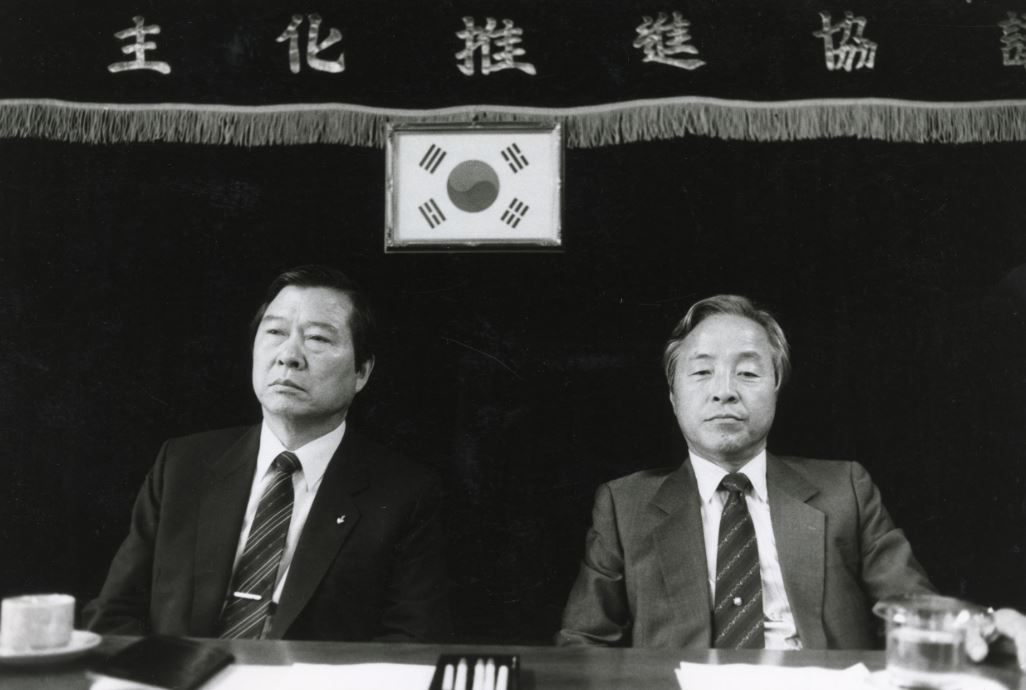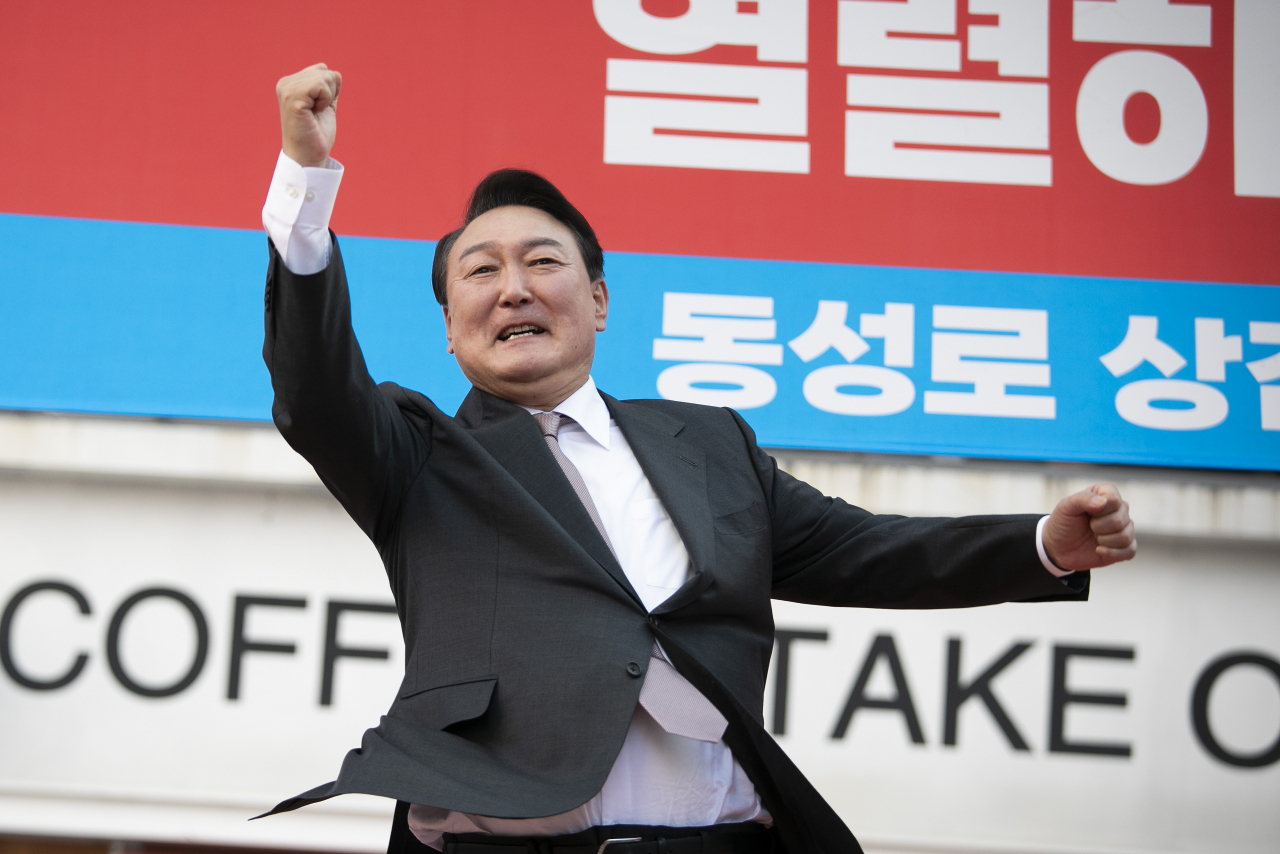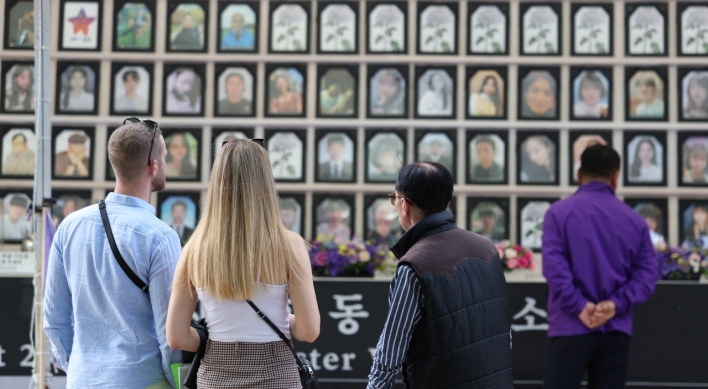[Election 2024] Will S. Korea's political regionalism crumble?
Changing voter priorities, emergence of young voters could impact country's deeply-rooted regionalism, but not in the short run, experts say
By Son Ji-hyoungPublished : April 7, 2024 - 18:33

South Korean politics has long been marked by a sharp east-west divide in its southern regions.
In the southeast, Daegu, Busan, Ulsan and the Gyeongsang Provinces have been a conservative stronghold for decades, while the country’s southwest, including Gwangju and the Jeolla Provinces, has been a bastion for the left wing.
In the 2020 legislative election, the center-left won in 27 out of 28 seats in Korea's southwest, while the conservatives won 56 out of 65 constituencies in the southeast.
But the effect appears to be waning. Younger voters are less influenced by regionalism and the power of legacy politics. Candidates are also addressing more diverse and complicated issues instead of focusing on regional imbalances.
Stephen Costello, a nonresident visiting scholar of George Washington University's Institute for Korean Studies said that regional loyalties would be competing in the coming elections with other identities, such as social class and gender.
"That is probably not a bad thing," he said. "The divide is partly generational, so younger people may have a more sophisticated understanding of political structures and policy."
Legacy or by-product
Experts say the phenomenon is a by-product of the way Korea's rapid industrialization was influenced by authoritarian regimes in the 1970s and 1980s.
The economic growth achieved by the dictatorships of Park Chung-hee and his successor Chun Doo-hwan was not evenly spread across the country.
In particular, the Gumi National Industrial Complex, home to manufacturing bases for textiles and electronics goods in North Gyeongsang Province, spearheaded South Korea's exports at the time.
"Much of the east-west divide in Korea is based not just on ancient history, but on the developmental strategies of the 1970s and 1980s, when the central government fostered development in the southeast and left the southwest behind," said Mark Peterson, professor emeritus of Korean, Asian and Near Eastern languages at Brigham Young University.
In the early 1970s, then-President Park Chung-hee's administration exploited the concept of regionalism to consolidate his regime's security, as Park sought his third term in office.
National Assembly Speaker Lee Hyo-sang in 1971 asked voters in North Gyeongsang Province and Daegu to vote for Park. He said, "Let's make a President from North Gyeongsang Province, otherwise all of us from the Gyeongsang Provinces will become (outcasts in the society)."
Park was born in Gumi, North Gyeongsang Province.
With Park's opponent Kim Dae-jung gaining popularity in the southwest and the Jeolla Provinces in 1971, Park won by a slim margin.
A year later, Park's administration passed the notorious "Yushin" Constitution to repeal the direct election system and consolidate his dictatorship.
Kim, who protested the Yushin Constitution, was kidnapped at a hotel in Tokyo in 1973, placed under house arrest back in Korea and banned from political activities. When Chun came to power shortly after Park's assassination, Kim was sentenced to death for treason over his alleged involvement in the Gwangju Democratic Uprising in 1980.

But Costello, a political consultant who has worked at the Kim Dae-jung Foundation in South Korea, said the region-based political divide also had older roots.
One example is the Donghak Peasant Revolution, which took place in the Jeolla Provinces in the late 19th century due to oppressive policies toward peasants during the Joseon era.
"Even before the modern era, there is a history of the southwest resisting the central government," Costello said. "It is therefore natural that resistance to dictatorial and authoritarian governments was often centered in the Jeolla Provinces."
He said the combination of the southwest's activist history and the longtime migration to Seoul and its resulting middle class formed the basis for the voter base of the modern center-left.
Region-based thinking
When Korea's modern democratic era began with the 1987 presidential election regionalism was a key campaign fixture.
For Roh Tae-woo, from North Gyeongsang Province, his principal support came from his home province and the neighboring city of Daegu.
On the other hand, two opposition heavyweights Kim Young-sam and Kim Dae-jung got their support from their own regional bases -- South Gyeongsang Province and Busan for the former, and the Jeolla Provinces and Gwangju for Kim Dae-jung. Another candidate, Kim Jong-pil, dominated the vote in South Chungcheong Province.
The split in the vote among opposition candidates allowed Roh to be elected with just 36.6 percent of the votes -- the lowest in Korea’s history.
One theory is that, had the Kims united candidacy, their regional bases would have followed them, and the split between southeast and southwest would have weakened.
In the end it was the southeastern region that united. Roh's party merged with those of Kim Young-sam and Kim Jong-pil in 1990, bringing support from the South Gyeongsang and Chungcheong regions.
Regionalism set in. Just three days before his election as president, a secret recording revealed that Kim Young-sam's campaigners and senior government officials of the Roh administration had met at a restaurant in Busan, where they talked about regional loyalties.
The transcript of the meeting, revealed just three days before the election, read: "Aren't we beside each other?" "Regionalism is a somewhat childish concept, but it helps develop our neighborhood."
Since then, the southeast and southwest have heavily leaned right and left, respectively.
In March 2021, Yoon visited Daegu and said he "felt like he has come home," although he was born in Seoul. The next day, he offered to resign as prosecutor-general after a long standoff with the liberal Moon Jae-in administration over a probe into Moon's key aide.
A year later, Yoon was elected president as the main conservative candidate, with about 75 percent support in Daegu, 72 percent in North Gyeongsang Province, and nearly 60 percent in Busan and South Gyeongsang Province.
In Gwangju and the Jeolla Provinces, where only around 15 percent of voters cast their ballots for Yoon.

Ruling party chief Han Dong-hoon's visit to Daegu in mid-December when he was justice minister also drew media attention, fanning speculation then that he might soon make his debut in politics less than half a year ahead of the general election.
Later in December, Han announced his bid to lead the ruling People Power Party.
Region-based political thinking, however, has its consequences, Costello said, as liberals in both South Korea and the United States "struggle to clearly articulate a policy-based approach to politics that would overcome the politics-as-sport and personality-based profiles."
On the other hand, conservatives in both countries "have failed to find an identity beyond a childish Cold-War ideology, and have become largely anti-democratic power groups," he added.
Election 2024
But there have been signs that regionalism is slowly crumbling.
In 2016, nine liberal lawmakers took constituencies in the southeastern region out of 65 in total, and seven did in 2020.
However, nonconservatives have gradually earned more votes over time. For example, 43.5 percent of all voters voted for liberal candidates in Busan in the 2020 general election, up from 37.8 percent in the 2016 election. Ulsan's votes for liberal candidates came to 38.6 percent in 2020, up twofold from 2016.
The trend might continue. In the latest poll by Metrix revealed Wednesday, Busan, Ulsan and South Gyeongsang Province showed that the ratio of supporters of the ruling People Power Party was outnumbered by that of the liberal main opposition Democratic Party of Korea.
Polls also indicated that Busan might produce the first lawmaker representing a minor progressive party. The Jinbo Party's candidate Noh Jeong-hyun from the Yeonje electoral district of Busan was leading by about 20 percentage points compared with the People Power Party candidate Kim Hee-jung, according to a poll in the first week of April by the Korea Society Opinion Institute.
However, Eom Ki-hong, a politics professor at Kyungpook National University, said the weakening regional loyalty in a specific constituency does not necessarily mean an end to regionalism.
"Let's say voters move from either the southwest or North Gyeongsang Province to the other place. Their political affiliation will remain unchanged and region-based thinking will prevail (in the region they moved to)," Eom said.
"Moreover, there might be cases in which children inherit their parents' political affiliations. Prominent political figures like Kim Young-sam and Kim Dae-jung have passed away, but regionalism will still be at play for the time being."
Peterson of Brigham Young University noted it is too early to say that South Korea is seeing a demise of regionalism in the short term.
"Practically speaking, I don't think voting this time is going to show a lessening of the divide," Peterson said. "However, Korea is changing and is so dramatically dynamic that I am constantly being surprised."







![[Music in drama] Rekindle a love that slipped through your fingers](http://res.heraldm.com/phpwas/restmb_idxmake.php?idx=644&simg=/content/image/2024/05/01/20240501050484_0.jpg&u=20240501151646)



![[New faces of Assembly] Architect behind ‘audacious initiative’ believes in denuclearized North Korea](http://res.heraldm.com/phpwas/restmb_idxmake.php?idx=644&simg=/content/image/2024/05/01/20240501050627_0.jpg&u=20240502093000)







